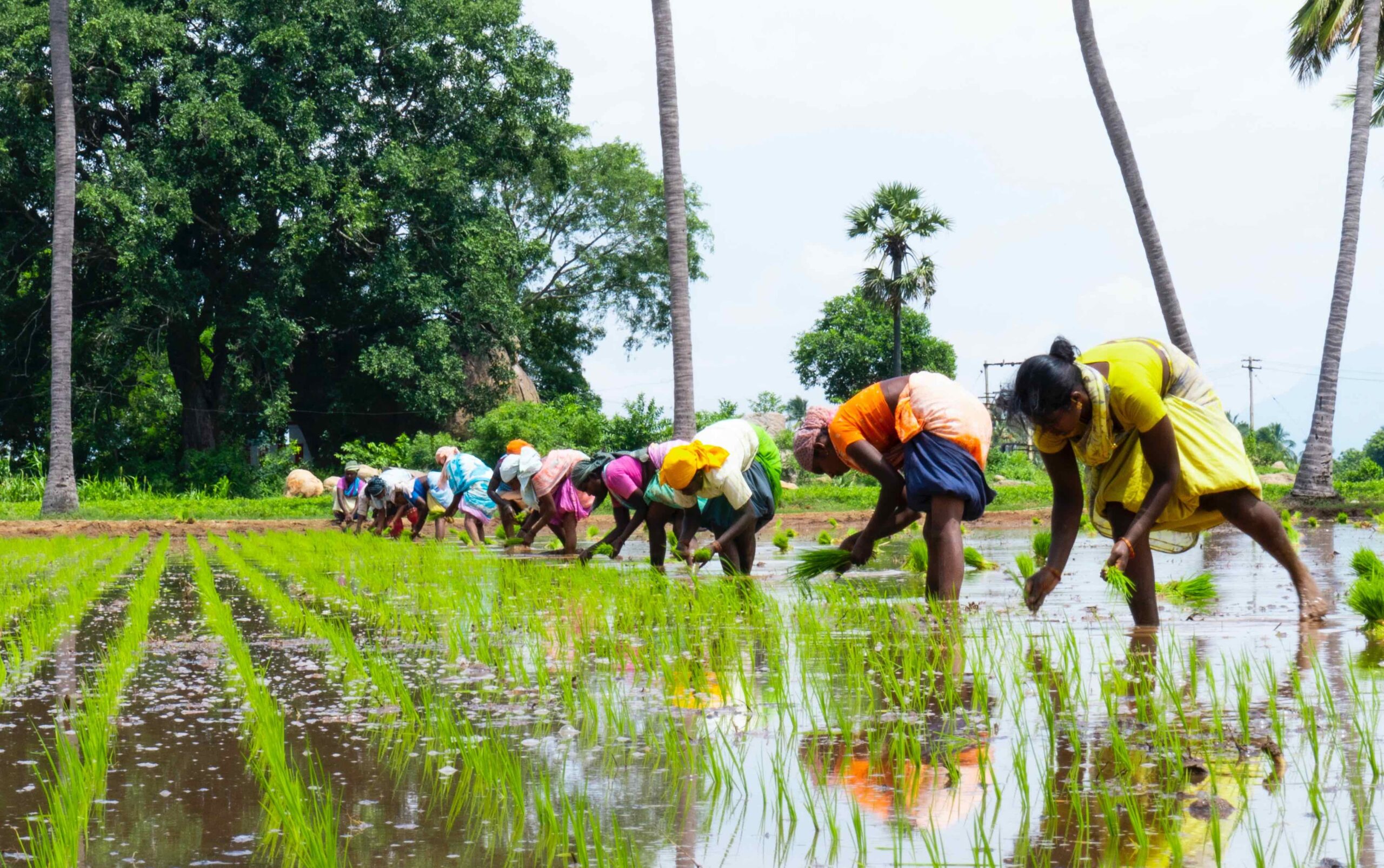Recent shocks from the COVID-19 pandemic to the ongoing Russia-Ukraine war have disrupted global food and fertilizer supply chains—causing price spikes and increased price volatility—a disastrous combination for many vulnerable consumers around the world.
As in past global food price crises, governments have used trade policies to try to protect consumers from rising prices. Many net food-exporting countries have tried to contain food price inflation by imposing export restrictions, while many importing countries have lowered import barriers on staple foods to achieve the same outcome.
In response to the 2007-8 global food price crisis, for instance, governments imposed export restrictions affecting over 15% of calories (Kcal) in internationally-traded staple foods. In the first months following the start of the COVID-19 lockdowns, such restrictions affected up to 7.5% of traded calories, while following the invasion of Ukraine this share was between 7% and 12% during much of 2022 (see IFPRI’s Food and Fertilizer Trade Restrictions Tracker). In 2022 and 2023, the government of India imposed several rounds of restrictions on exports of rice, wheat and sugar to help avoid domestic price increases.
We have long argued that such emergency food trade measures are counterproductive. While well-intended, they have proven ineffective in insulating populations from food price volatility. In fact, a recent IFPRI study finds that they make things worse. First, export restrictions by major (or many) food producers reduce global supply and further increase prices in international markets, making consumers in other countries worse off (beggar thy neighbor). Second, when many importing countries reduce import barriers, that pushes up global demand, further increasing international prices and offsetting the intended insulation of consumers at home. Third, many of these policies also create serious domestic price instability (beggar thyself).
Policies of rice and wheat price insulation have been pervasive for decades, as shown in Figures 1 and 2, based on over 70 years of data for 29 countries accounting for around 90% of world production of these crops. Absent price insulation, the rates of protection on these commodities would be unrelated to their world prices. In fact, they show that protection rates move inversely with world prices. During periods of low prices, protection rises. When prices rise, protection falls as countries restrict exports or lower import barriers.
Figure 1
Figure 2
These policies are certainly beggar thy neighbor. The IFPRI study finds that, on average, the collective impact of insulation policies is to roughly double the impact of initial global price shocks on wheat and rice, which means they quadruple the volatility of world prices, as measured by their variance.
Further analysis shows that, perhaps surprisingly, the policies used also increase volatility of domestic prices for wheat and rice in many countries. Policymakers generally assume this type of policy will stabilize prices. However, that is much harder than it might appear. For instance, once an export ban is in place, any news of reduced expected yields in the next harvest will cause the domestic price to jump. Where prices are administered, governments frequently end up making very large adjustments, such as the recent quadrupling of wheat prices in Egypt.
Thus, efforts to moderate prices result in greater domestic price volatility. The study considers the variance of domestic prices under three scenarios—one without any government intervention, one assuming policymakers can insulate consumers efficiently against changes in world prices, and one looking at the actual, observed volatility.
Figures 3 and 4 show that, in most countries, the effects of price-insulating policies—shown by the orange bars—has helped reduce domestic price volatility substantially; it is in most cases lower than global price volatility. However, once we allow for domestic price shocks, the volatility of domestic prices rises substantially in most cases—shown by the green bars.
Figure 3
Figure 4
Because insulating policies have roughly quadrupled the volatility of world prices, it also becomes clear that those policies have actually lowered domestic price volatility in only a very few economies. This is a remarkably disappointing outcome, and evidence that price-insulating policies—as currently configured—are poor ways to protect consumers from food price volatility. There is clearly a strong case for policy reform both at national level—to reduce domestic price volatility—and the global level—to reduce the volatility of world prices.
Will Martin is a Senior Research Fellow with IFPRI's Markets, Trade, and Institutions (MTI) Unit; Abdullah Mamun is an MTI Senior Research Analyst; Nicholas Minot is MTI Deputy Director; Rob Vos is MTI Director. Opinions are the authors'.
This work was supported by the World Bank, the UK Foreign, Commonwealth and Development Office (FCDO) and the U.S. Agency for International Development (USAID). The work was undertaken as part of the CGIAR Research Initiative on Rethinking Food Markets, which provides evidence on the innovations, incentives and policies most effective for creating equitable income and employment opportunities in food markets.
Referenced IFPRI Discussion Paper:
Martin, Will; Mamun, Abdullah; and Minot, Nicholas. 2024. Food trade policy and food price volatility. IFPRI Discussion Paper 2253. Washington, DC: International Food Policy Research Institute.







